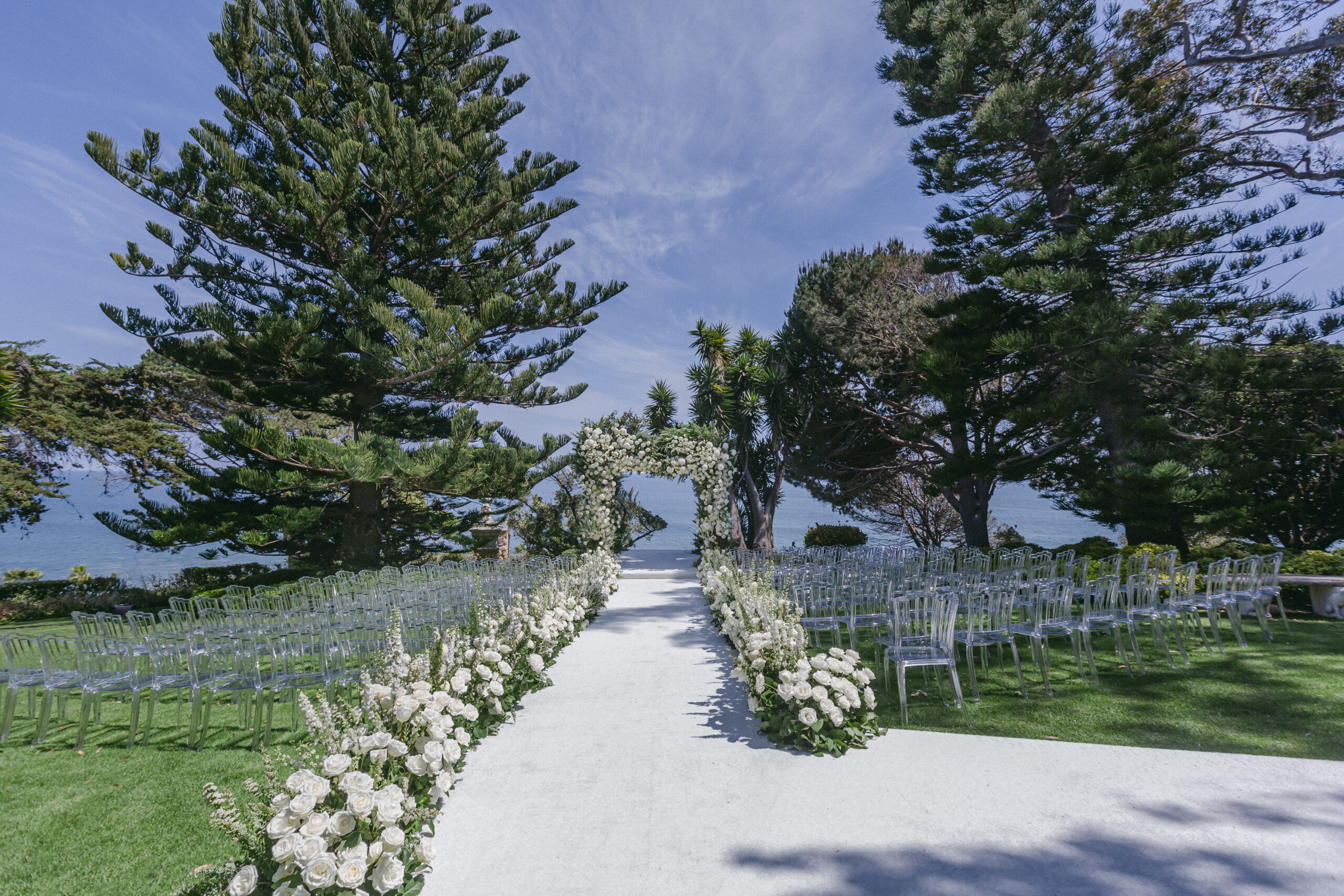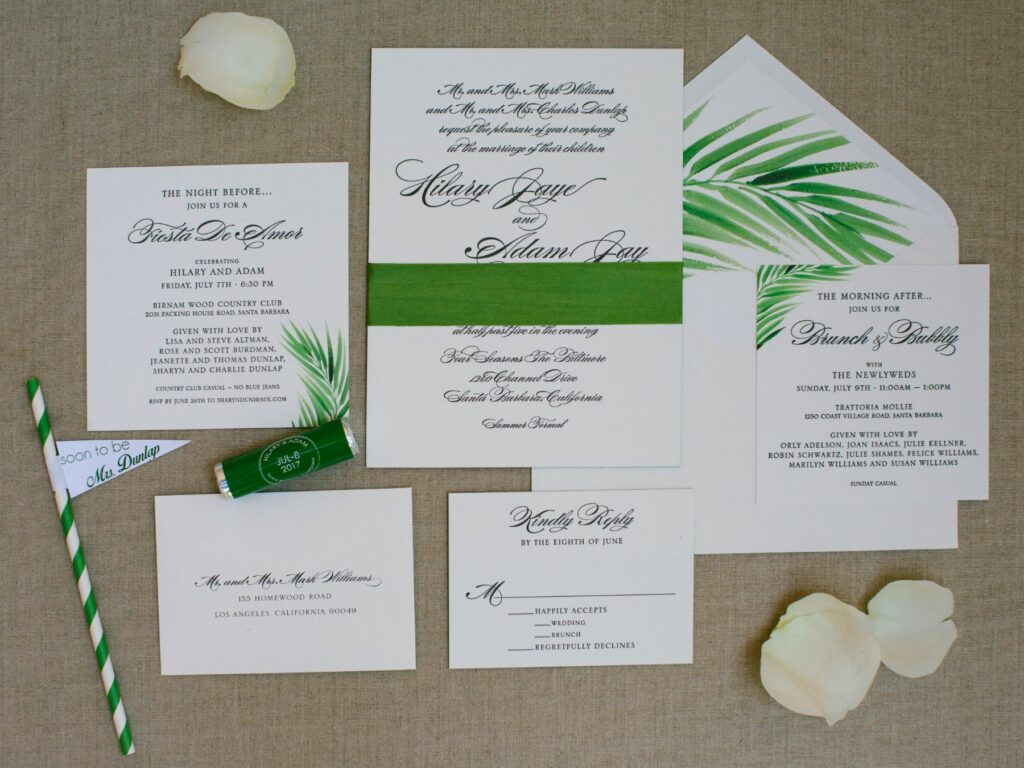
Are you drawn to the notion of a sunlit beach ceremony, with your heart fluttering as joyfully as the summer winds themselves? The captivating allure of declaring your love with the soft lullaby of waves and the golden glow of the setting sun is indisputable. Yet, it’s essential to remember that beach weddings, while bewitching, are not without their distinct tropical characteristics. If you’re pondering the idea of exchanging planning a beach wedding, here are some benefits, challenges, and crucial points to take into account.
The Benefits of Beach Weddings
Natural Beauty
The beach is a stunning setting that requires minimal decorations. Imagine your aisle decorated with seashells or a simple arch adorned with tropical flowers. The sunrise or sunset provides the perfect natural lighting for photographs too!
Dress Code
At a beach wedding, the dress code is generally more relaxed. Your guests will appreciate the chance to wear flip-flops or go barefoot, and lighter, flowing fabrics are the order of the day.
Memorable
A beach wedding is unique and leaves a lasting impression on both you and your guests. It’s often an experience many of your friends and family won’t forget in a hurry!

The Drawbacks of Beach Weddings
Weather
The biggest downside to a beach wedding? Mother Nature. Weather can be unpredictable, and beach locations often mean wind, rain, or excessive heat. Make sure you have a backup plan in case of inclement weather.
Accessibility
Beaches may not be easily accessible for elderly guests or those with mobility issues. Sand can be challenging to walk on and there may not be adequate facilities nearby.

Permits and Rules
Most public beaches require a permit for weddings. Some have restrictions on noise, alcohol, and even the number of guests you can have. Research the rules for your chosen beach thoroughly.
Top Tips for a Beach Wedding
Choose the Right Dress
Ditch the traditional long train and heavy material for something light, breezy, and sand-friendly. Also, consider your hairstyle—beach waves or an updo can help combat the wind.
Consider the Timing
To avoid the hottest part of the day, plan your ceremony for early morning or late afternoon. It’s more comfortable for guests and offers better lighting for photos.
Provide Comfort
Offer guests amenities like sunscreen, bug spray, and bottled water. Also, consider providing a shoe station where guests can swap their formal footwear for flip-flops.
Use Local Vendors
If you’re getting married far from home, sourcing vendors like caterers, florists, and photographers who are local to your beach destination can be easier and less stressful.
Insurance
Wedding insurance is always a good idea, but especially for beach weddings, given the higher risk of weather disruptions.
Beach weddings can be magical, relaxed, and utterly unforgettable. But they do come with potential pitfalls, like weather challenges and accessibility issues. So, do your homework, make sure you’re prepared, and work closely with a wedding planner who has experience with beach nuptials. With the right planning, your beach wedding can be the serene, sun-drenched event of your dreams. After all, the best kind of wedding crasher is the ocean wave!
xoxo,
Mindy
Images by Getúlio Moraes, Lauren and Abby Ross, Ira Lippke



